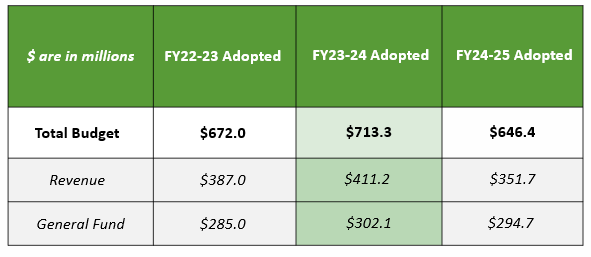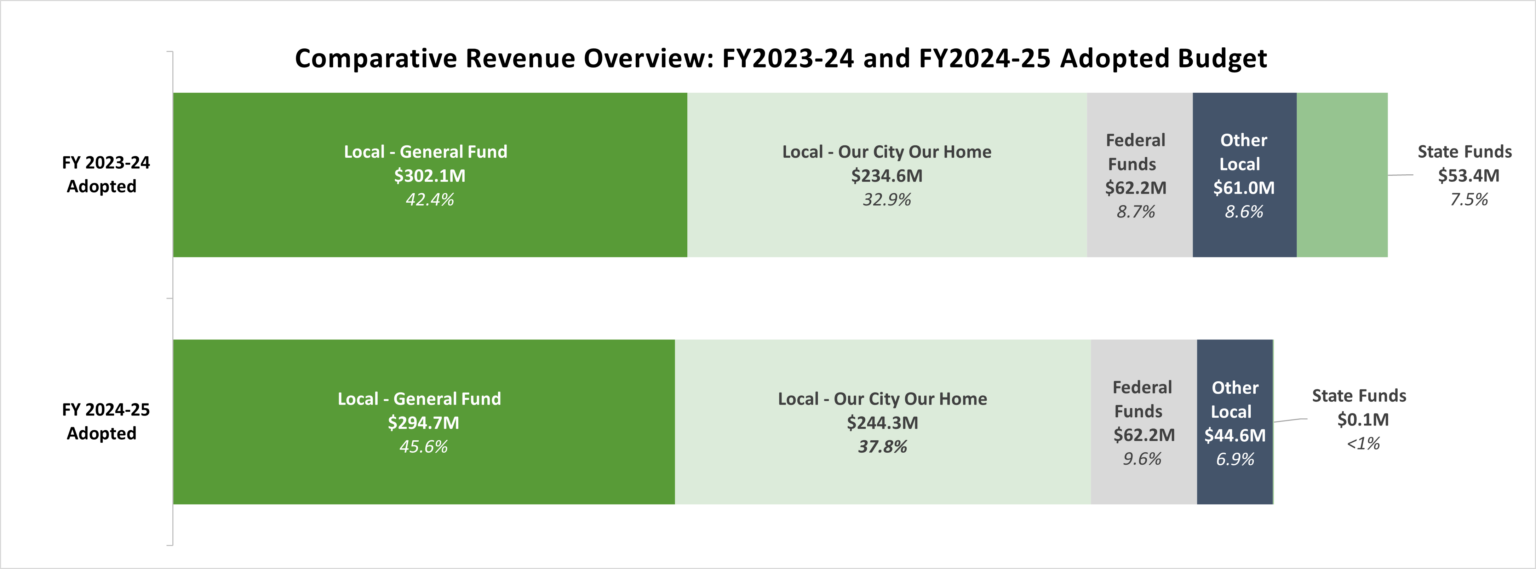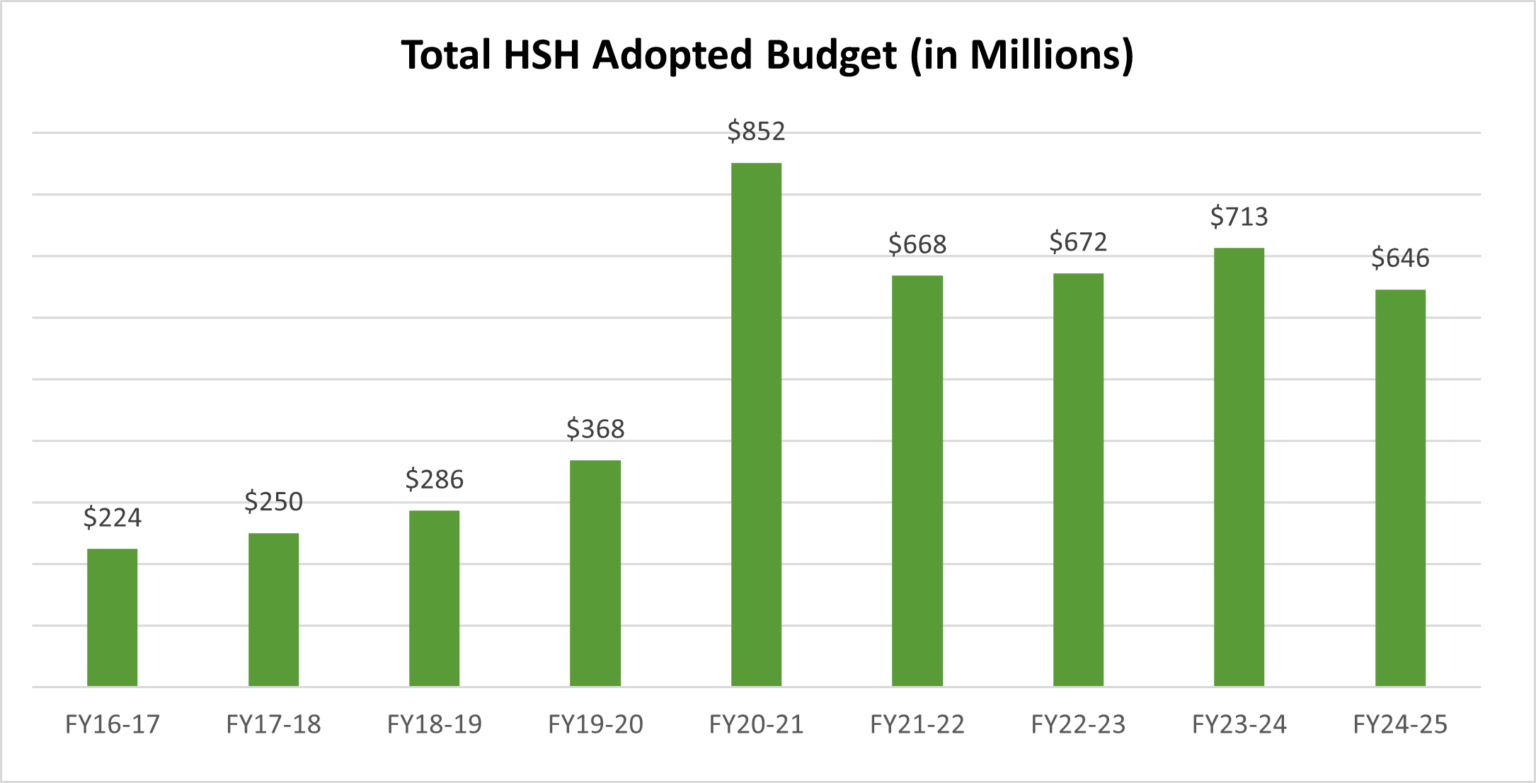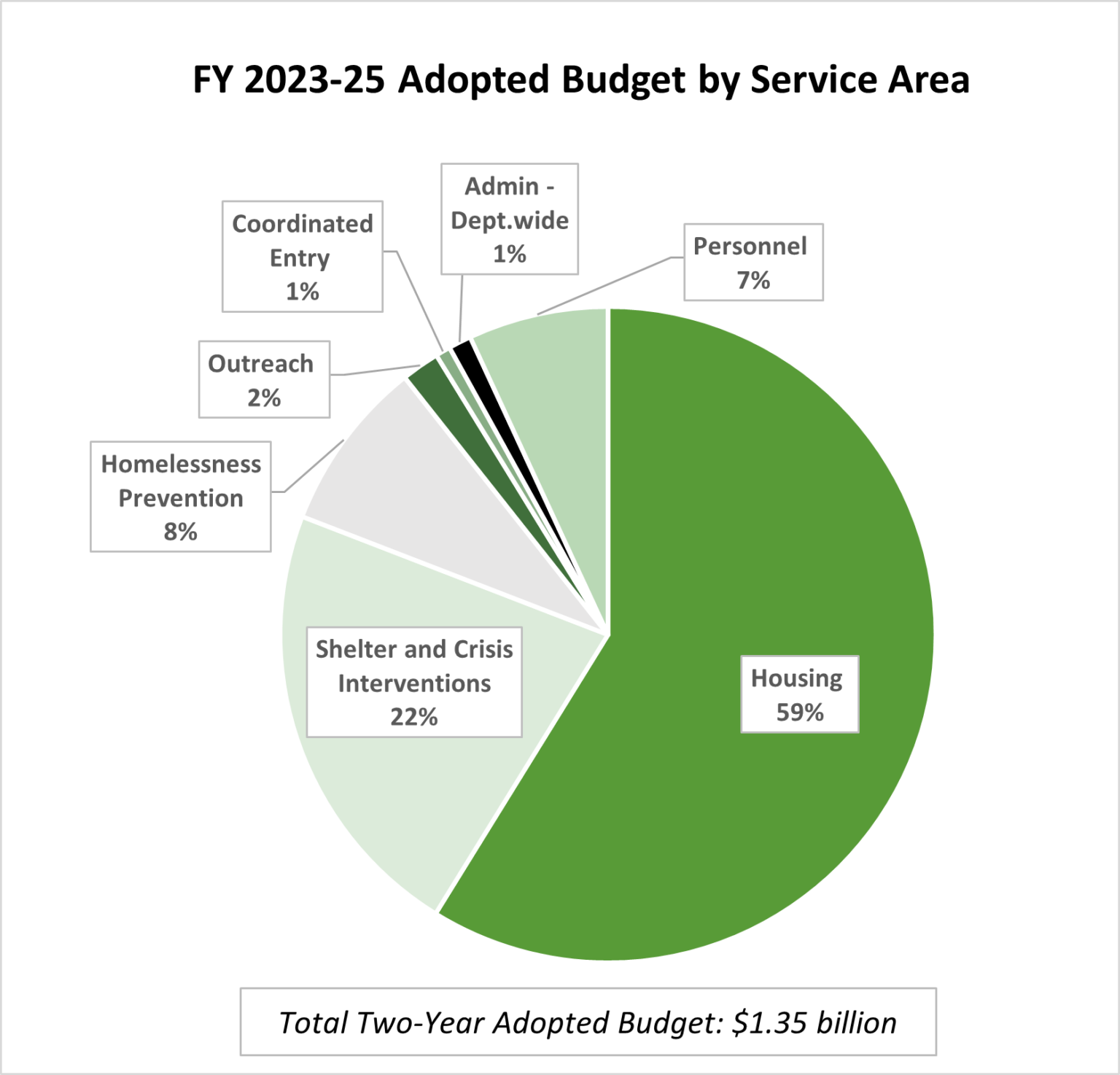FY 2023 to 2024 and FY 2024 to 2025 Budget Approval Process
Over the winter, HSH held public meetings as required by the Administrative Code to solicit input on the proposed budget from the Local Homeless Coordinating Board and the general public.
HSH presented on the Mayor’s proposed budget at two hearings of the San Francisco Board of Supervisors Budget and Appropriations Committee on June 15, 2023, and June 22, 2023. Access meeting archives on the Board of Supervisors website.
The budget was fully adopted in July 2023. Get more information about the proposals and the final approved budget:
- FY2023-24 and FY2023-25 Mayor’s Proposed Budget Book (HSH Content Begins on Page 211)
- HSH Proposed Budget Presentation (presented on June 15, 2023)
- Our City, Our Home Fund reallocation proposal:
- HSH Adopted Budget Overview Presentation (presented on July 6, 2023)
Back to top
FY2023-24 & FY2024-25 Adopted Budget
The adopted FY2023-24 and FY2024-25 Budget for HSH is approximately $713 million in FY2023-24, and $646 million in FY2024-25. The budget:
- Maintains HSH’s current funding levels without programmatic cuts.
Leverages local, state, and federal funds to start the housing, shelter, and prevention expansions outlined in Home by the Bay, the citywide five-year strategic plan to prevent and end homelessness.
The budget allocates $713.3 million to HSH in FY 2023-24 and $646.4 million in FY 2024-25.

HSH’s adopted two-year budget includes: 43.9% from local General Fund dollars, 35.2% from local Our City, Our Home dollars, 9.1% in federal funds, 7.8% in other local funds, and 4% in state funds. Our overall budget drops in FY 2024-25 due largely to the end of one-time state funding.

With ongoing Our City, Our Home funding, HSH’s budget has more than tripled since the first year of the Department’s operation.

The FY 2023-24 and FY 2024-25 budget adds 10 positions over the two years to continue to right-size HSH’s staffing levels. These additional staff allow HSH to keep up with this expansion and enhance departmental effectiveness.
Ninety-two percent of the adopted two-year budget is appropriated to homelessness response system services, including 59 percent ($799.7 million) into housing. Housing costs go towards subsidies and services that keep households who have exited homelessness stably and successfully housed, as well as new units.

Back to top
Key Initiatives and Expansions
The adopted budget includes investments to expand the homelessness response system and improve program quality.
Housing Investments
- Expansions:
- $12 million over two years to expand permanent housing by approximately 355 slots.
- $4 million to support operations and services of 258 newly constructed units through the City’s affordable housing pipeline serving adults, veterans, families, and young adults.
- $13 million for young adult and family acquisitions in FY2024-25.
Quality Improvements: $50 million to enhance housing quality and housing choice, including money management support services, a pilot for skilled nursing and enhanced behavioral health in permanent supportive housing (PSH), building upgrades at legacy PSH sites, and capital repairs.
Shelter Investments
- Expansion: Investments to add a net of approximately 594 beds, reaching 55% of the goal set in the citywide strategic plan.
- Key expansions: one new shelter site in District 10, a 60-unit cabin project in the Mission, and expanded capacity of 395 beds across four existing shelter sites.
- Key Continuing Programs: $54 million to maintain six programs with approximately 521 units and beds stood up during the response to COVID-19 that may otherwise have had to close:
- Includes three hotel-based non-congregate shelters, one semi-congregate shelter, one cabin site, and one safe parking site.
- Quality Improvements: $1.2 million over two years to enhance hours and services at shelters.
Prevention Investments
Expansions: Reach 34% of the citywide strategic plan’s goals by investing:
- $16.2 million in homelessness prevention over 2 years to serve up to 750 additional households annually through the SF Emergency Rental Assistance Program (SF ERAP).
